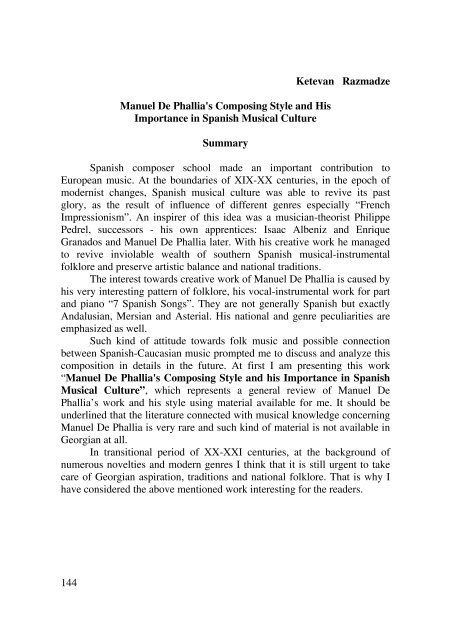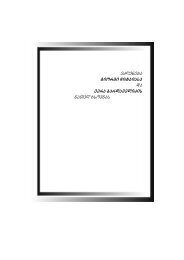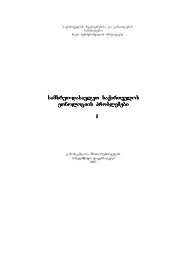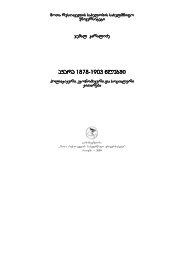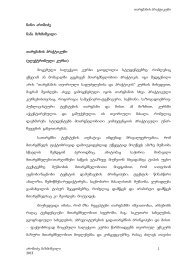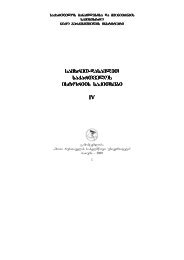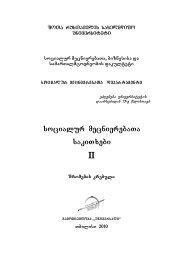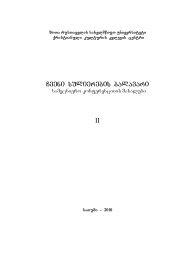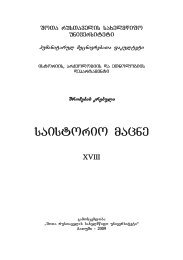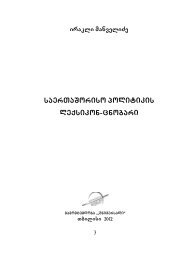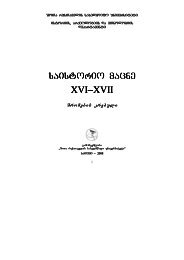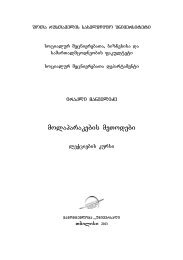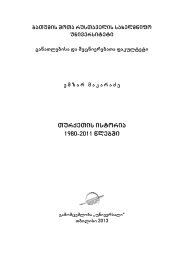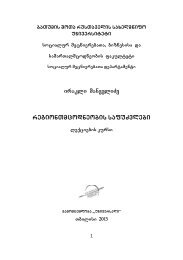xelovnebaTmcodneobiTi etiudebi STUDIES IN ART CRITICISM II
xelovnebaTmcodneobiTi etiudebi STUDIES IN ART CRITICISM II
xelovnebaTmcodneobiTi etiudebi STUDIES IN ART CRITICISM II
Create successful ePaper yourself
Turn your PDF publications into a flip-book with our unique Google optimized e-Paper software.
144<br />
Manuel De Phallia's Composing Style and His<br />
Importance in Spanish Musical Culture<br />
Summary<br />
Ketevan Razmadze<br />
Spanish composer school made an important contribution to<br />
European music. At the boundaries of XIX-XX centuries, in the epoch of<br />
modernist changes, Spanish musical culture was able to revive its past<br />
glory, as the result of influence of different genres especially “French<br />
Impressionism”. An inspirer of this idea was a musician-theorist Philippe<br />
Pedrel, successors - his own apprentices: Isaac Albeniz and Enrique<br />
Granados and Manuel De Phallia later. With his creative work he managed<br />
to revive inviolable wealth of southern Spanish musical-instrumental<br />
folklore and preserve artistic balance and national traditions.<br />
The interest towards creative work of Manuel De Phallia is caused by<br />
his very interesting pattern of folklore, his vocal-instrumental work for part<br />
and piano “7 Spanish Songs”. They are not generally Spanish but exactly<br />
Andalusian, Mersian and Asterial. His national and genre peculiarities are<br />
emphasized as well.<br />
Such kind of attitude towards folk music and possible connection<br />
between Spanish-Caucasian music prompted me to discuss and analyze this<br />
composition in details in the future. At first I am presenting this work<br />
“Manuel De Phallia's Composing Style and his Importance in Spanish<br />
Musical Culture”, which represents a general review of Manuel De<br />
Phallia’s work and his style using material available for me. It should be<br />
underlined that the literature connected with musical knowledge concerning<br />
Manuel De Phallia is very rare and such kind of material is not available in<br />
Georgian at all.<br />
In transitional period of XX-XXI centuries, at the background of<br />
numerous novelties and modern genres I think that it is still urgent to take<br />
care of Georgian aspiration, traditions and national folklore. That is why I<br />
have considered the above mentioned work interesting for the readers.


